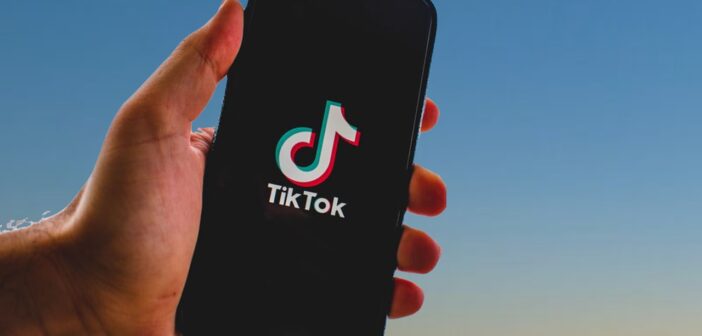credit:https://pixabay.com/
In an intriguing turn of events, reports suggest that China is considering the sale of TikTok’s US operations to none other than Elon Musk. This potential transaction brings together the world’s largest social media platform and one of the most innovative entrepreneurs. Such a move could have far-reaching consequences for technology, geopolitics, and social media dynamics. This article explores the multifaceted implications, delving into geopolitical tensions, Musk’s strategic motives, TikTok’s US market potential, national security concerns, regulatory challenges, and consumer reactions.
Geopolitical Tensions: How a TikTok Sale Could Shape US-China Relations
The potential sale of TikTok’s US operations to an American entity, particularly to someone like Elon Musk, holds deep geopolitical implications that transcend mere business transactions. Amid strained US-China relations, where accusations of espionage, intellectual property theft, and data security have clouded the tech sector, TikTok has emerged as a symbol of China’s growing influence over global digital spaces. If the deal materializes, it would not only address national security concerns from the US by placing the app under the control of a prominent American figure but also represent a strategic victory in the ongoing tech rivalry with China. However, for China, relinquishing control over such a high-profile platform could be seen as a concession, potentially fueling domestic resentment and concerns over China’s technological sovereignty. The ripple effect of this transaction would likely exacerbate the already intense US-China tensions, as it underscores a larger geopolitical struggle for dominance in the future of technology and information control.
Elon Musk’s Vision for TikTok: Strategic Motives Behind the Acquisition
Elon Musk’s potential acquisition of TikTok’s US operations would be a strategic move to consolidate his growing digital ecosystem and further his vision of integrating social media with his broader technological ambitions. TikTok’s highly engaging, AI-driven short-video format offers a powerful complement to Musk’s focus on artificial intelligence and data optimization, enabling him to enhance his ventures, including Twitter (X), by merging rich multimedia content with text-driven interactions. The synergy between the platforms could create a unified digital experience, where cross-platform integration allows for innovative monetization strategies, such as AI-based content curation, direct commerce, or personalized ad models. With Musk’s relentless pursuit of innovation, acquiring TikTok could also serve as a way to strengthen his foothold in the entertainment and social media sectors, propelling him beyond traditional industries like space and electric vehicles to create a multi-faceted, AI-powered tech empire.
TikTok’s US Market: Financial Performance and the Future After Acquisition
TikTok’s surge in popularity, driven by its algorithmic precision and viral content format, has made it a global powerhouse, especially among younger users who crave authenticity and creativity in their digital experiences. With Elon Musk potentially taking the reins, the platform could undergo a transformative phase where monetization strategies are ramped up, such as integrating advanced ad formats, launching subscription-based services, or merging with e-commerce platforms to tap into new revenue streams. However, this shift comes with the risk of disrupting the very essence of TikTok that has made it a cultural touchstone—its spontaneity and user-driven content. Any aggressive changes in the platform’s policies or user experience, whether through intrusive ads or alterations to content guidelines, could alienate the loyal community that has thrived on the current, freewheeling vibe. This delicate balance between innovation and preservation of its original spirit will determine TikTok’s financial trajectory and long-term relevance in the ever-evolving social media landscape.
National Security Concerns: The Risks and Rewards of TikTok’s Ownership Change
The debate surrounding TikTok’s ownership centers on national security, with U.S. lawmakers expressing fears that ByteDance, the app’s parent company, might be influenced by the Chinese government, potentially using the platform for espionage through user data access. A sale to Elon Musk could mitigate these concerns, as it would place TikTok under U.S. jurisdiction, providing greater oversight and transparency in how user data is handled. However, questions remain regarding how Musk’s unorthodox, hands-off management approach would interact with regulatory frameworks designed to ensure data security and algorithm transparency. While Musk’s focus on innovation could potentially foster growth, regulators would likely demand clear safeguards to prevent misuse of data or manipulation. Balancing Musk’s entrepreneurial vision with the need for rigorous compliance to U.S. security standards would be pivotal in resolving the security concerns while enabling the platform’s continued success.
The Role of Big Tech in Global Politics: What Musk’s Acquisition Could Mean for Social Media Regulation
The potential acquisition of TikTok by Elon Musk represents a pivotal moment in the evolving landscape of digital media, amplifying concerns about the concentration of power within a single tech mogul. Musk’s history of disrupting industries with Tesla and SpaceX, alongside his influence in reshaping business models, may bring innovative strategies to TikTok, but also raises the specter of monopolistic behavior and unchecked power. Such a move would place a massive social media platform under Musk’s control, effectively consolidating digital influence across several major platforms. For policymakers, this emphasizes an urgent need to modernize antitrust laws, ensuring they account for the complexities of the digital age where scale, data, and user engagement hold unprecedented power. Additionally, creating regulatory frameworks that balance innovation with transparency and accountability is critical to preventing the misuse of market dominance, fostering competition, and protecting users’ interests in an increasingly digital world.
Consumer Response: How American Users Might React to a Musk-Led TikTok
TikTok’s success hinges not only on its addictive content and algorithm but also on its loyal and highly engaged user base, which has flourished due to the platform’s ability to foster creativity and community. A shift in ownership or drastic policy changes under Musk’s leadership could alter this delicate ecosystem. Musk, known for his bold, unconventional, and at times controversial leadership style, may bring an influx of curious new users drawn by his vision, particularly in areas like tech innovation or cross-platform synergies. However, his polarizing approach could alienate existing users who value TikTok’s authentic, user-driven experience. Changes to the algorithm, content moderation, or integration with his other ventures, like Twitter or SpaceX, could disrupt TikTok’s identity, transforming it into something unrecognizable to long-time users. Balancing these potential shifts without diminishing TikTok’s core appeal—its ability to empower creators, encourage viral trends, and maintain a sense of community—will be a crucial, but tricky, challenge.
Conclusion
The prospect of Elon Musk acquiring TikTok’s US operations represents a convergence of technology, business, and geopolitics. From easing geopolitical tensions to redefining the platform’s strategic direction, this potential deal could significantly influence the future of social media and global tech dynamics. While challenges such as national security concerns and regulatory scrutiny persist, Musk’s innovative leadership could unlock new opportunities for TikTok’s growth and evolution.
References
- “TikTok’s Global Influence and Security Risks” – The Washington Post
- “Elon Musk’s Vision for Digital Innovation” – TechCrunch
- “US-China Tech Rivalry: Implications for Social Media” – Harvard Business Review
- “The Future of Social Media Regulation” – Brookings Institution
- “TikTok’s Market Dominance in the United States” – Statista
- “Analyzing Elon Musk’s Impact on the Tech Industry” – Forbes



